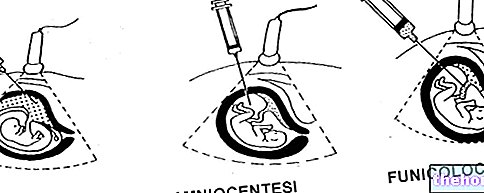Generality
Alphafetoprotein (AFP) is a glycoprotein substance produced, from the earliest stages of pregnancy, first by the yolk sac and then by the fetus.
During intrauterine life, the unborn child synthesizes AFP mainly in the liver, with a marginal contribution from the kidneys and gastrointestinal system. After birth, the alpha-fetoprotein levels begin to decrease reaching values typical of an adult over a period of a year.

What's this
Alphafetoprotein is a protein that is synthesized by the liver and the yolk sac during the stages of fetal and embryonic development. This protein is present in the plasma of the unborn child in high quantities, starting from the second trimester of pregnancy, so as to be revealed also in the maternal blood.
From the moment of delivery onwards, alpha-fetoprotein levels drop rapidly, so much so that it is found only in small traces in healthy women and children.
Currently, the function of this protein in adults and during fetal development remains unclear.
The gene responsible for its expression is the AFP gene located on the q arm of chromosome 4.
Because it is measured
In pregnant women, the blood alpha-fetoprotein assay is used as a control screening for any congenital malformations of the neural tube (such as spina bifida or anencephaly). In addition, the test is useful to support the diagnosis of trisomy 21 (or Down syndrome).
The alphafetoprotein assay is performed together with estriol and β-hCG; the combination of these three evaluations is called a tri-test and is performed between the fifteenth and twentieth week of pregnancy.
If the fetus has a neural tube closure defect, it means that there is an "opening in the spinal cord, head or abdominal wall. These defects cause higher than normal concentrations of AFP to pass through the placenta and find themselves again. in excess in the maternal blood.




























